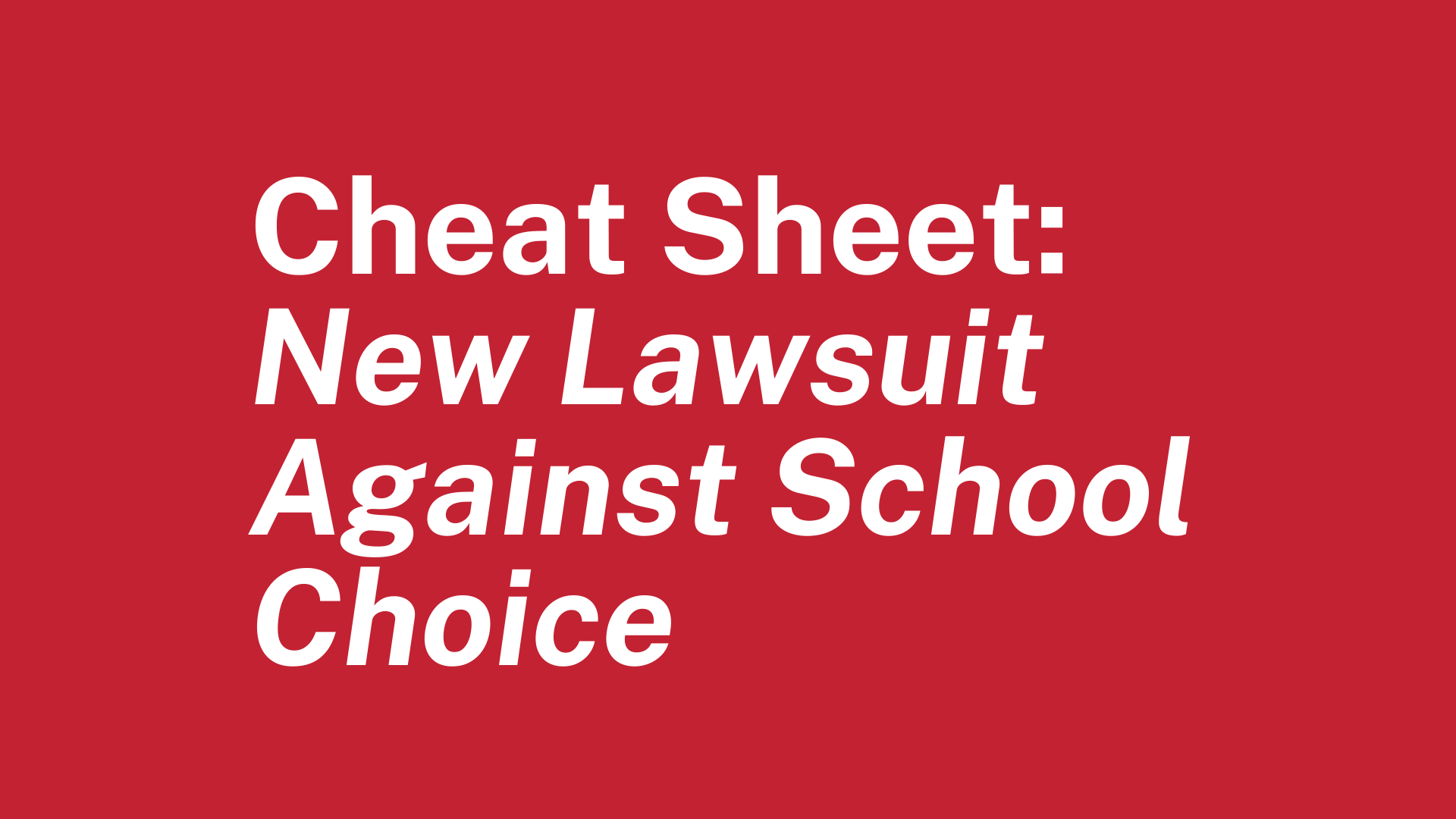This post originally appeared at https://reforminggovernment.org/cheat-sheet-new-lawsuit-against-school-choice-2/

Cheat Sheet: New Lawsuit Against School Choice
BACKGROUND
Late Thursday, October 12, the Minocqua Brewing Company SuperPAC made good on its promise to fund a lawsuit challenging Wisconsin’s popular school choice programs. A coalition of Wisconsin citizens filed a petition asking the Supreme Court of Wisconsin to take jurisdiction of an original action challenging the Milwaukee Parental Choice Program, the Racine Parental Choice Program, the Wisconsin Parental Choice Program, the Independent Charter School Program, and the Special Needs Scholarship Program. Calling the programs “parasitic” and “predatory,” the plaintiffs argue that each violates the Wisconsin Constitution and ask for an order cutting off their funding. The lawsuit also challenges the caps put on school districts’ ability to raise revenue through property taxes.
THE ARGUMENTS
The Plaintiffs claim that Wisconsin’s school choice programs violate three provisions under the Wisconsin Constitution:
The first is the requirement that laws passed by the legislature serve a public purpose. This argument was considered and rejected by the Supreme Court decades ago when these programs were first challenged.
The second is the requirement of uniform taxation; the Plaintiffs claim that the school choice programs result in unequal burdens on some school districts.
The third is a provision vesting the supervision of the Superintendent of Public Instruction with the supervision of public instruction, the theory being that the superintendent does not currently have adequate oversight of private schools.
On the merits, the lawsuit makes eyebrow-raising exclusions and extraordinary claims.
It argues that voucher schools receive more state aid than district schools. It does so by excluding hundreds of millions of dollars in categorical aid (like special needs) that are unaffected by the revenue limit and have no ceiling. This aid specifically flows to districts with expensive students.
It ignores that Wisconsin ranks 23rd nationally in public school spending per student by most recent data, 19th when adjusted for cost of living. In fact, staffing levels are higher per student today than they were before Act 10.
The writers even forgot to update their complaint that voucher schools have no requirements regarding their curriculum, given that Act 20 will prohibit all voucher schools from “3-cueing” in their literacy curricula as Wisconsin moves to the science of reading.
WHAT HAPPENS NEXT
An “original action” is a lawsuit filed directly before the Supreme Court of Wisconsin, bypassing the normal process of first litigating a case before a trial court and then the Court of Appeals. The Supreme Court does not have to accept review of the lawsuit, and the votes of four justices are needed for it to do so. Minocqua Brewing is hoping that the recent election of Justice Janet Protasiewicz means it will be able to have its claims heard directly.
In terms of next steps, the Supreme Court will likely order the Defendants–Speaker of the Assembly Robin Vos, Superintendent of Public Instruction Jill Underly, and Department of Administration Secretary Kathy Blumenfeld–to respond to the petition. It will then decide whether to take up the case. If the Court accepts the case, expect a firestorm in Wisconsin as choice advocates and opponents throughout the country seek to weigh in on the merits. The Wisconsin Institute for Law & Liberty (WILL) has already weighed in, with President and General Counsel Rick Esenberg stating, “The arguments that it makes would call into question Wisconsin’s entire education system, throwing us all into chaos… WILL stands ready to oppose their efforts and mount a staunch defense of the program in court.”
Ultimately, this lawsuit is a vanity project that would hurt low-income and working-class families. Milwaukee voucher and charter schools make up 6 of the top 10 high-poverty schools in reading proficiency (using the most recent data), 8 of the top 10 predominantly Hispanic schools, and 8 of the top 10 predominantly Black schools. They are Catholic, Lutheran, secular, and Islamic, all working together with school districts to serve children’s academic and cultural needs. A man from Minocqua, which has 0 voucher or charter schools in its district or even its county, would throw them all onto the street.